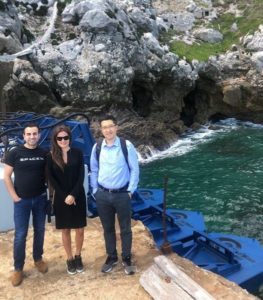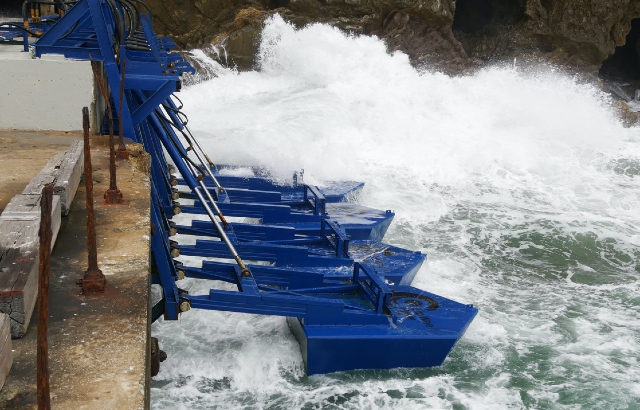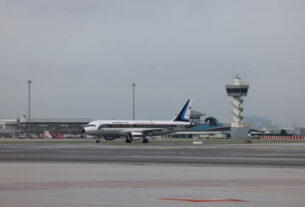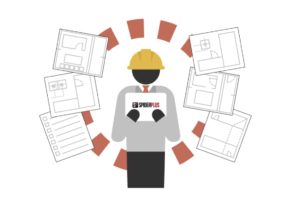
Queen Mary researchers win grant to establish the first onshore wave energy converters to power Thailand’s remote islands
Researchers at Queen Mary University of London have been awarded around £300,000 from Innovate UK to develop the first microgrids powered by onshore wave energy converters (WECs).
The new project “Sea Wave Energy Powered Microgrid for Remote Islands and Rural Coasts”, is funded as part of Innovate UK’s Energy Catalyst programe and will be carried out in collaboration with Eco Wave Power, (Eco Wave Power Global, Ticker Symbol: ECOWVE), the Asian Institute of Technology (AIT) of Thailand, and the Provincial Electricity Authority (PEA) of Thailand.
The research team at Queen Mary will develop an advanced microgrid solution using novel control systems and power electronics to significantly improve the overall performance of Eco Wave Power’s existing onshore WECs. It is hoped their approach could reduce the maintenance costs of these systems and help provide reliable electricity to low-income residents of Thailand’s remote islands in the future.
Dr Guang Li, Reader in Control Engineering and investigator of the project, said: “Wave energy is a continuous power source, and still has lots of unlocked potential. We are especially pleased to receive this award from Innovate UK’s Energy Catalyst program to study the cutting-edge solutions for enhancing WEC potential and contribute to the commercialisation of wave energy in islands with additional microgrid applications. Microgrids are part of the future grid systems and are a great solution for small communities to provide energy resilience and even disaster recovery.”
“We are grateful for Innovate UK’s vote of confidence and are very excited to start working with our collaborators Eco Wave Power, the Asian Institute of Technology (AIT) and the Provincial Electricity Authority (PEA) of Thailand. We believe that our collaboration will yield significant knowledge and scientific progress,” Dr Kamyar Mehran, Senior Lecturer at Queen Mary and investigator of the project, added.

Addressing current energy challenges
Wave energy converters (WECs) convert wave energy into renewable forms of electricity. Currently, offshore wave energy technology is struggling to be commercialized at large scale due to the high cost caused by the maintenance, long distance power transmission and low conversion efficiency of existing WECs.
This project will study the development of onshore WECs powering the first pilot microgrid in Phaluai Island (Ko Phaluai – เกาะพะลวย) located in southern part of Thailand. Eco Wave Power’s onshore WEC system holds the potential to offer an economically viable solution for low-income island communities, given its increased efficiency and attractive levelized cost of energy, the average lifetime costs of generating energy using a specific technology, in comparison to solar and diesel generators.
Professor Weerakorn Ongsakul from the Asia institute of Technology, who is involved in many high-profile renewable energy projects in Southeast Asia including the major Green Land project in Thailand, commented: “Universal energy supply is already on the horizon; renewable energy is a great leap forward; new opportunities are opening up for energy efficiency; digitalization and new wave of the digital economy are in offing ready to revolutionize energy sector as well.”
The Thai electrical state enterprise, Provincial Electricity Authority (PEA) will act as the microgrid operator in the islands and minimise the capital cost of electricity to provide an electricity tariff as cheap as monthly mobile charges without any asset ownership and maintenance cost for residents. The PEA officials, said: “PEA is a leading organization in the region, which focuses on providing efficient, reliable electricity services, related business for developing quality of life, sustainability of economics and society.”
Building long-term collaborations
Since 2016, Eco Wave Power has operated a grid-connected onshore wave energy floaters array in Gibraltar, and it is currently finalising the construction of its second grid-connected wave energy array in Israel. The consortium chose WECs produced by Eco Wave Power for this project as they offer many competitive advantages regarding cost-efficiency, insurability, reliability, and environmental friendliness.
Inna Braverman, Founder and CEO of Eco Wave Power, commented: “This grant from Innovate UK is the third grant approval notice that we received in June. We see this as a strong vote of confidence in Eco Wave Power and our pioneering technology and look forward to a productive collaboration with the team at Queen Mary, the Asian Institute of Technology, and the Provincial Electricity Authority of Thailand. We are extremely grateful to Innovate UK, as this project presents a unique opportunity for us to research a new technology application for our WEC, customised for islands and other micro grid applications, which are a significant target market for Eco Wave Power.”
The new funding from Innovate UK adds to Queen Mary’s existing grant with Eco Wave Power, awarded by the Wohl Clean Growth Alliance. This grant aims to further develop and improve the control system for the Eco Wave Power WEC, to enable faster commercial roll out of the EWP technology. Along with the Innovate UK project it will help promote and facilitate establishment of a long-term research collaboration between Queen Mary and Eco Wave Power’s engineering team.
Source: https://www.qmul.ac.uk/media/news/2021/se/queen-mary-researchers-win-grant-to-establish-the-first-onshore-wave-energy-converters-to-power-thailands-remote-islands.html



